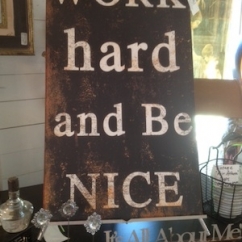Sales Strategy
Your Culture Is Not A Sign On The Wall | April 29, 2015 (0 comments)

Boston, MA—Matthew Lieberman wrote in Social, Why Our Brains Are Wired To Connect, “Given what we know about the social brain, creating the right social environment in our places of work should be a top priority for anyone who wants the best of themselves and those around them.” Lieberman’s comments are a great reminder of how, by definition or default, culture in our place of business plays a huge role in shaping not just our quality of life but, to a great extent, our productivity.
Creating a positive culture is a complex and painstaking process. It requires a clear vision of what you want the business to be, a consistent reiteration of the things that the business values and a check-and-balance ethos that encourages all of the team members to hold themselves, and each other, accountable for upholding your organizational principles.
Culture is not a series of buzzwords and platitudes to be framed and hung on a wall. It is not something to be pointed to every once in a while as though it were a Cole Porter lyric: meaningful, resonant and reflecting something aspirational and great when, in fact, it is really nothing more than a karaoke version—hollow, meaningless and disconnected from the typical behaviors and attitudes that define the business from one day to the next.

Peter Smith
Or, in simpler terms, good workplace culture requires the proverbial “put your money where your mouth is.”
For instance, any notion of a business that says it’s committed to providing the best possible experience for its customers, yet treats its employees poorly, is both hypocritical and delusional. Employees who are disengaged or disenchanted with their work life will generally have neither the will nor the emotional capacity to deliver consistently outstanding experiences to their customers.
Additionally, any business that refers to its employees as “family” yet pays only lip-service to the needs of its employees in areas such as work/life balance or the needs of working mothers etc., is straining credibility with the very people it purports to value.
Another example of a major cultural disconnect is a company that espouses a commitment to openness and candor while regularly crushing the creativity and innovation of its own employees who make suggestions for improvement or change.
I just finished a book by Carmine Gallo in which he writes about people having to be their authentic selves when they are making presentations and giving speeches. He argues that people, consciously or otherwise, have a tendency to lose some of who they really are when they perceive themselves as performing for an audience. Gallo’s observation is a great metaphor for culture, as espousing cultural values and aspirations is a hollow goal if you do not live by them in your business. Otherwise, you will be just like the comedian Louis C. K., who said, “I have a lot of beliefs, and I live by none of them.”
Every business has its own unique culture. In the best cases, however, it has been crafted to define the best of what that business can be and reinforce it everyday by the actions and behaviors of the management and the employees. The cultural values are clear enough that they can be identified and embraced by employees and customers alike. It’s more than just a sign that hangs in the bathroom.
Peter Smith, author of Hiring Squirrels: 12 Essential Interview Questions To Uncover Great Retail Sales Talent, has spent 30 years building sales teams at retail, and working with countless numbers of independent retailers as a brand-executive, to offer his counsel and advice on personnel matters. A graduate of Boston College, he has served on the Advisory Board of Caliper’s Global Conference and is a contributing panelist on the KR Executive Group’s Talent Blog. Smith has worked for Tiffany & Co., and was executive vice president of brand development for Hearts On Fire, where he authored the Menu For Success, a roadmap for retail success. Smith’s book is available in print or Kindle digital edition on Amazon.com.
Top image: Cydneysalley.com







